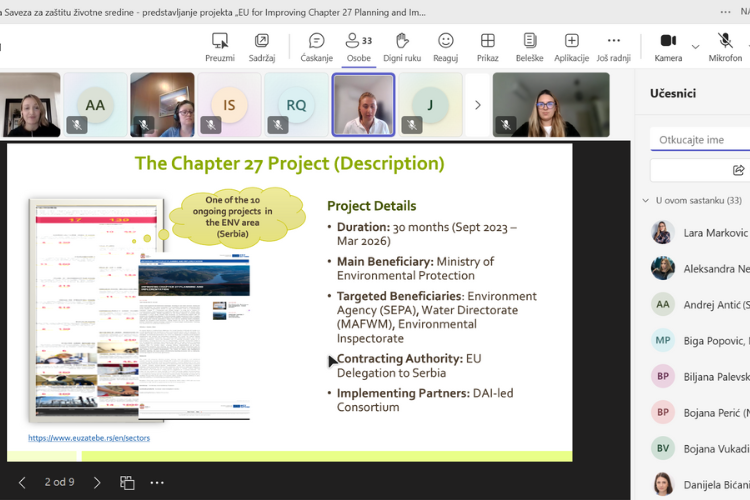Introduction of CBAM concept in Serbia - CBAM
Donor: European Climate Foundation - ECF
Partners: Lafarge BFC Serbia, Titan Cementara Kosjerić, Impol Seval Aluminium Rolling Mill AD Sevojno, Metalfer Steel Mill, Moravacem d.o.o, HBIS Group and Elixir Group
lmplementation period: decembar 2023 - march 2025
The CBAM project is aimed at strengthening the capacity of domestic industry for a successful transition to a low‑carbon economy and adapting to the new business conditions introduced by the European Union’s Carbon Border Adjustment Mechanism (CBAM). The project focuses on the transitional period until early 2026 to prepare energy‑intensive industries and the Serbian market for new regulatory requirements, with the goal of maintaining competitiveness in the EU market and supporting the green transition.
Within the project, an Analysis of the potential impacts of the Carbon Border Adjustment Mechanism on energy‑intensive industries in Serbia was developed, including socio‑economic implications and recommendations for mitigation measures. Special emphasis was placed on recommendations for establishing a national CO₂ emissions monitoring system, introducing a national carbon tax, and imposing levies on imports of products with high emissions (national CBAM), thereby ensuring fair conditions for domestic producers and encouraging investments in decarbonization technologies. The project also contributes to aligning national regulations with EU standards, including recommendations for amendments to state aid rules to support green industrial transformation.
Objectives and results
The project seeks to assess and analyze the direct and indirect impacts of the CBAM mechanism on the domestic energy and energy‑intensive industries, with particular attention to its effects on competitiveness. Through the development of recommendations, the project aims to encourage timely and systematic introduction of national measures for reducing CO₂ emissions in industry, including the establishment of a national emissions taxation mechanism and a national CBAM levy for products from third countries.
The project also aims to contribute to shaping the country’s fiscal and regulatory response to ensure a just transition towards decarbonization, as well as to provide a basis for redefining the state aid system in line with the Green Agenda and new EU rules. Ultimately, it seeks to strengthen dialogue between institutions, industry, and the expert community, laying the foundations for a long‑term and sustainable industrial policy in the context of energy and climate transformation.
Key activities:
-
Detailed analysis of the financial and trade effects of CBAM by sector and development of national response scenarios;
-
Proposals for fiscal and budgetary tools to support industrial decarbonization;
-
Organization of consultations with policymakers, the business community, and the expert public;
-
Promotion of recommendations and strengthening institutional dialogue on the green transition.



